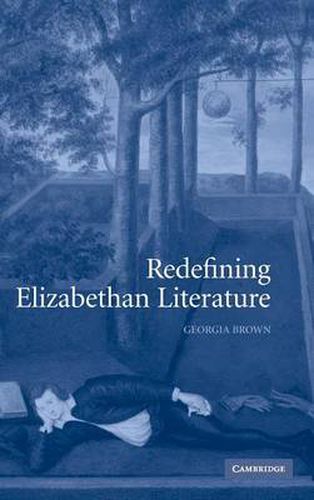Readings Newsletter
Become a Readings Member to make your shopping experience even easier.
Sign in or sign up for free!
You’re not far away from qualifying for FREE standard shipping within Australia
You’ve qualified for FREE standard shipping within Australia
The cart is loading…






Redefining Elizabethan Literature examines the new definitions of literature and authorship that emerged in one of the most remarkable decades in English literary history, the 1590s. Georgia Brown analyses the period’s obsession with shame as both a literary theme and a conscious authorial position. She explores the related obsession of this generation of authors with fragmentary and marginal forms of expression, such as the epyllion, paradoxical encomium, sonnet sequence, and complaint. Combining recent developments in literary theory with close readings of a wide range of Elizabethan texts, Brown casts new light on the wholesale eroticisation of Elizabethan literary culture, the form and meaning of Englishness, the function of gender and sexuality in establishing literary authority, and the contexts of the works of Shakespeare, Marlowe, Spenser and Sidney. This study will be of great interest to scholars of Renaissance literature as well as cultural history and gender studies.
$9.00 standard shipping within Australia
FREE standard shipping within Australia for orders over $100.00
Express & International shipping calculated at checkout
Redefining Elizabethan Literature examines the new definitions of literature and authorship that emerged in one of the most remarkable decades in English literary history, the 1590s. Georgia Brown analyses the period’s obsession with shame as both a literary theme and a conscious authorial position. She explores the related obsession of this generation of authors with fragmentary and marginal forms of expression, such as the epyllion, paradoxical encomium, sonnet sequence, and complaint. Combining recent developments in literary theory with close readings of a wide range of Elizabethan texts, Brown casts new light on the wholesale eroticisation of Elizabethan literary culture, the form and meaning of Englishness, the function of gender and sexuality in establishing literary authority, and the contexts of the works of Shakespeare, Marlowe, Spenser and Sidney. This study will be of great interest to scholars of Renaissance literature as well as cultural history and gender studies.